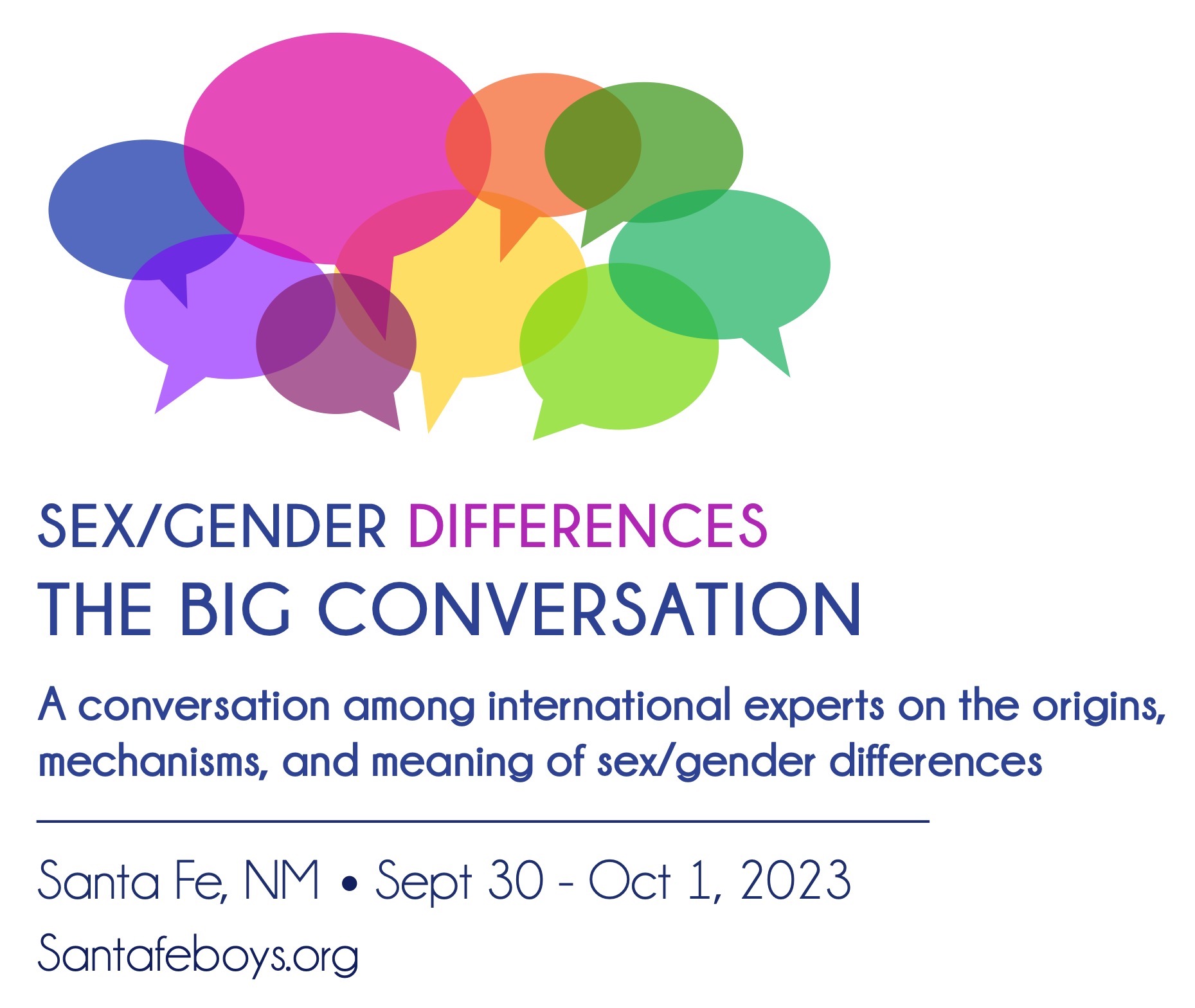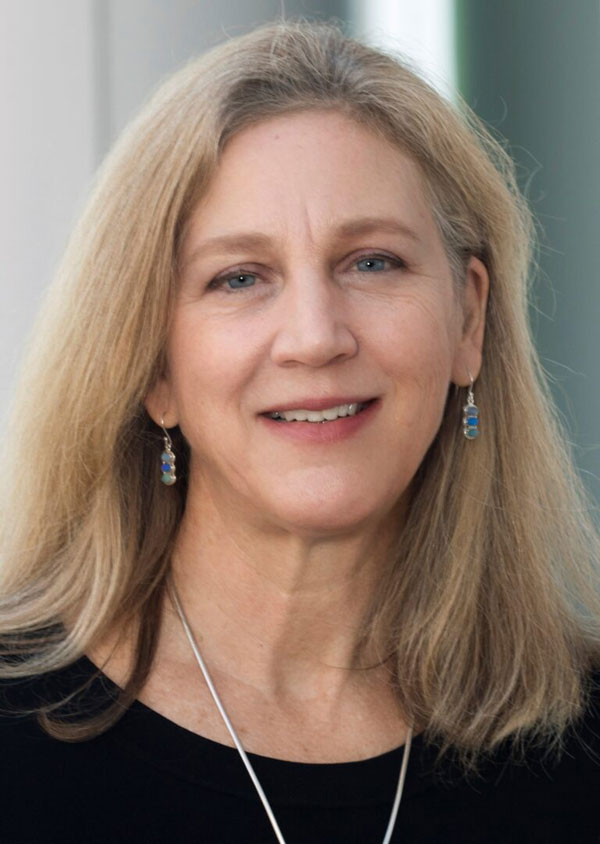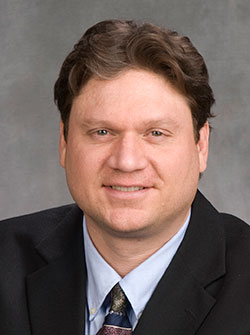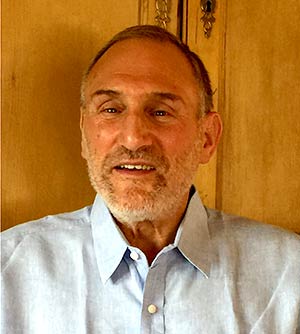
Participants in The Big Conversation
Bios and Abstracts of Their Presentations
What are the roles of biology and social factors in the development of psychological differences between girls and boys, women and men? What is the best way to understand those differences from a scientific standpoint? On September 30 and October 1, 2023, a group of leading scholars will gather at the Eldorado Hotel in Santa Fe, New Mexico to address this crucial topic from a wide range of different, sometimes clashing perspectives. The goal is to raise and answer questions of all kinds, to further in-depth dialogue across disciplinary boundaries, and to facilitate progress on all sides of the issue. Following are the participants in Sex/Gender Differences: The Big Conversation.

David Buss, PhD, University of Texas
(We regret that Professor Buss will be unable to participate in person, but will attend remotely. His talk will be given by graduate student, William Costello.)
David M. Buss is a Professor of Psychology at the University of Texas at Austin. Buss previously taught at Harvard University and the University of Michigan. He is considered the world’s leading scientific expert on strategies of human mating and one of the founders of the field of evolutionary psychology. His books include The Evolution of Desire: Strategies of Human Mating; Evolutionary Psychology: The New Science of the Mind; The Dangerous Passion: Why Jealousy is as Necessary as Love and Sex; The Murderer Next Door: Why the Mind is Designed to Kill; and (with Cindy Meston) Why Women Have Sex. His most recent book: When Men Behave Badly: The Hidden Roots of Sexual Deception, Harassment, and Assault (2021) uncovers the evolutionary roots of conflict between the sexes. Buss has more than 300 scientific publications. In 2022, he was cited as one of the 50 most influential living psychologists in the world.

Marco Del Giudice, PhD, University of Trieste, Italy
Marco Del Giudice received his PhD at the University of Turin in Italy and is currently at the University of Trieste. His research is highly interdisciplinary and explores a broad range of topics at the intersection of human behavior, evolution, and development – such as the evolutionary basis of mental disorders, the origins of developmental plasticity, and the function of individual differences in stress neurobiology. He has published influential work on the measurement of sex differences and similarities, the evolution of sex differences in personality and attachment, and other aspects of psychological variation between males and females. He has served as Editor of the journal Evolution and Human Behavior, and in 2016 was granted the Early Career Award of the Human Behavior and Evolution Society. Visit Dr. Del Giudice’s website.

Lise Eliot, PhD, Chicago Medical School of Rosalind Franklin University
Lise Eliot is Professor of Neuroscience and Executive Chair of the Department of Foundational Sciences and Humanities at the Chicago Medical School of Rosalind Franklin University, where she is also a member of the Stanson Toshok Center for Brain Function and Repair. Her research centers on brain and gender development, especially the role of neuroplasticity in translating early life experience into neural circuitry. She received a B.A. in History & Science from Harvard, a PhD in Cellular Physiology & Biophysics from Columbia, and completed a postdoctoral fellowship in Neuroscience at Baylor College of Medicine. Dr. Eliot’s research has ranged from cellular neurophysiology to meta-analyses of human brain imaging and includes two highly praised books, What’s Going On in There?, How the Brain and Mind Develop in the First Five Years of Life (Bantam), and Pink Brain, Blue Brain: How Small Differences Grow Into Troublesome Gaps (Houghton Mifflin Harcourt).

Joyce Endendijk, PhD, Utrecht University, the Netherlands
Dr. Endendijk is Assistant Professor of Child and Adolescent Studies at Utrecht University, the Netherlands. Since 2010, she has studied determinants and outcomes of gender socialization for children and adolescents, mostly in the family context. A unique aspect of her research is the combination of measures from social psychology (e.g., implicit association tasks), developmental psychology (e.g., longitudinal designs), child and family studies (e.g., observation of family processes), and neuroscience (e.g., EEG, fMRI). Because of the interdisciplinary nature of her research, she has expertise with multiple research methods to assess gender bias, such as experimental tasks, behavioral observation, content-analysis, questionnaires, picture books, and assessment of brain activity. Her current research focus is on gender equality, particularly in the school context, which is a major gender socialization force throughout childhood and adolescence. Schools reach many children at once, which makes them an efficient driving force toward more gender-equality.

Cordelia Fine, PhD, University of Melbourne, Australia
Cordelia Fine is Professor in the History & Philosophy of Science program in the School of Historical & Philosophical Studies at the University of Melbourne. Her work analyzes scientific and popular biological explanations of behavioral sex differences and workplace gender inequalities, explores the effects of gender-related attitudes and biases on decision-making, and contributes to debates about workplace gender equality. She is the author of A Mind of Its Own, Delusions of Gender and Testosterone Rex, the latter winning the Royal Society Insight Investment Science Book Prize in 2017. In recognition of her work on the understanding of gender stereotypes, challenging gender perceptions and contributions to public discourse to close the gender gap, Cordelia Fine was awarded the 2018 Edinburgh Medal by the City of Edinburgh Council, to honor men and women of science who have made a significant contribution to the understanding and well-being of humanity. Her academic work and other writing can be found at cordelia-fine.com.

Maryanne Fisher, PhD, Saint Mary’s University, Halifax, Canada & the Kinsey Institute
Maryanne L. Fisher is a Full Professor and award-winning teacher in the Department of Psychology at Saint Mary’s University in Halifax and an Affiliate Faculty member at the Kinsey Institute in Bloomington, Indiana. She is the Editor-in-Chief for the American Psychological Association’s upcoming Handbook of Evolutionary Psychology and edited the Oxford Handbook of Women and Competition (2017; Oxford University Press). She was also the lead editor of Evolution’s Empress: Darwinian Perspectives on the Nature of Women (2013; Oxford University Press). Her research primarily pertains to the intersection of feminism(s) and evolutionary perspectives, as well as women’s intrasexual mating competition, issues surrounding mothering, sex-specific mating strategies, and application of evolutionary psychology to understand popular culture.

David C. Geary, PhD, University of Missouri
David C. Geary is a Curators’ Distinguished Professor in the Department of Psychological Sciences and the Interdisciplinary Neuroscience Program at the University of Missouri. His work spans a broad range of topics from children’s mathematical cognition and development to the study of sex differences and their evolution. His four sole-authored books include Children’s Mathematical Development (1994), Male, Female (1998, 3rd edition 2021), Origin of Mind (2005), and Evolution of Vulnerability (2015). He has also published one co-authored book, Sex Differences (2008), and co-edited six other books, along with about 350 journal articles and chapters. His interests in sex differences include sex-specific vulnerabilities associated with chronic exposure to stressors, using Darwin’s sexual selection and the evolution of condition-dependent traits. These traits have been exaggerated over evolutionary time and are often the first to deteriorate with exposure to stressors, such as poor nutrition, chronic disease, and toxins.

Carole Hooven, PhD, American Enterprise Institute
Carole Hooven earned her PhD from Harvard University in 2004 based on her work on testosterone and sex differences in human cognition. She remained at Harvard, teaching (mostly about behavioral endocrinology) and co-directing the undergraduate program in Human Evolutionary Biology. In 2021, she published the book T: the Story of Testosterone, the Hormone that Dominates and Divides Us. She is currently at the American Enterprise Institute.

Daphna Joel, PhD, Tel Aviv University, Israel
Daphna Joel is Professor of Neuroscience and Psychology at the School of Psychological Sciences and the Sagol School of Neuroscience at Tel Aviv University. In the past decade, she has been studying questions related to brain, sex and gender, using various analytical methods to analyze diverse datasets, from large collections of brain scans to information obtained with self-report questionnaires. In a series of papers, she described and tested the “mosaic” hypothesis – the claim that sex differences in the brain do not add-up consistently in individuals; rather, most brains comprise of both features that are more common in females and features that are more common in males. Ongoing studies attempt to characterize the relations between sex and brain structure and function. She is also the author of Gender Mosaic: Beyond the Myth of the Male and Female Brain (2019, Little Brown, NY). For more details and CV, please visit her website.

Donna Maney, PhD, Emory University
Dr. Maney received her undergraduate degree in Biology from Cornell University and her PhD in Neurobiology and Behavior at the University of Washington. She completed a postdoctoral fellowship at Johns Hopkins University and joined the faculty of Emory University in 2002.
For the past decade, Dr. Maney and her group have been studying a “supergene” in white-throated sparrows that is mimicking the early evolution of sex chromosomes. Her group has identified several genes inside this supergene that appear to be causal for an aggressive phenotype, which although it is male-like, occurs 50% of the time in females. Dr. Maney is also interested in sex differences in humans and how those differences impact public policy. A major focus of her work is to investigate how sex differences are tested for and reported in biomedical research, and to promote inclusivity and scientific rigor in the study of sex differences and women’s health.

Margaret M. McCarthy, PhD, University of Maryland School of Medicine
Margaret (Peg) McCarthy received a PhD from the Institute of Animal Behavior at Rutgers University, Newark NJ, postdoctoral training at Rockefeller University, and was a National Research Council Fellow at NIAAA (National Institute on Alcohol Abuse and Alcoholism) before joining the faculty of the University of Maryland School of Medicine in 1993. She was a Professor in the Department of Physiology and Associate Dean for Graduate Education before becoming the Chair of the Department of Pharmacology in 2011, and the Director of the Program in Neuroscience in 2020. She has a long-standing interest in the cellular mechanisms establishing sex differences in the brain. She uses a combined behavioral and mechanistic approach in the laboratory rat to understand both normal brain development and how these processes might go selectively awry in males versus females. She has published over 200 peer-reviewed manuscripts and her work has been cited over 20,000 times. Dr. McCarthy is a Fellow and member-at-large of AAAS (American Association for Advancement of Science), a fellow in ACNP (American College of Neuropsychopharmacology), and is the former President of Organization for the Study of Sex Differences and President-Elect of the Society for Behavioral Neuroendocrinology. She was named one of Maryland’s Top 100 Women in 2009, and awarded the University of Maryland Researcher of the Year and Champion of Excellence in 2015 and 2017. More recently, Dr. McCarthy’s distinguished career was recognized with the awarding of the James and Carolyn Frenkil Dean’s Professorship.

David Puts, PhD, Pennsylvania State University
David Puts is a Professor of Anthropology and Co-Director of the Center for Human Evolution and Diversity at Pennsylvania State University. Dr. Puts completed his postdoctoral fellowship in the Neuroscience Program at Michigan State University and received his PhD in Anthropology from the University of Pittsburgh. His lab conducts research on human sexuality and sex differences using multiple approaches, including clinical research, cross-cultural and cross-species comparison, experimental psychology, endocrinology, genetics, and the methods and theory of evolutionary biology. He has published over 120 articles and chapters on these topics, and has received several awards for this work, including the 2013 Early Career Award for Distinguished Scientific Contribution from the Human Behavior and Evolution Society. He is Associate Editor of Archives of Sexual Behavior, Adaptive Human Behavior and Physiology, and Evolution and Human Behavior, and is Co-Editor of Evolutionary Psychology.

Tania Reynolds, PhD, University of New Mexico
Tania Reynolds is Assistant Professor in Evolutionary Psychology at the University of New Mexico. She completed her PhD in Social Psychology at Florida State University and a postdoctoral position at the Kinsey Institute. Her work examines how social selection and intrasexual competition across human evolution differentially shapes the social preferences, biases, and behaviors of modern women and men. She applies evolutionary theory towards understanding men’s anti-gay bias, women’s body dissatisfaction, same-sex friendship preferences, female intrasexual competition, ovulatory shifts in anxiety, pregnancy-related changes in behavior, and asymmetries in concern over female versus male suffering. At UNM, she teaches courses on human evolution, sexuality/gender, and personality. She currently serves as the moderator for Heterodox Academy’s Psychology Community to promote viewpoint diversity and freedom of inquiry in academia.

Gina Rippon, PhD, Aston University, UK
Professor Gina Rippon is Emeritus Professor of Cognitive Neuroimaging at the Aston Brain Centre, Aston University. Her research involves state-of-the-art brain imaging techniques to investigate developmental disorders such as autism. She is also researching issues associated with unrecognized females on the autistic spectrum. She is a passionate supporter of initiatives to address the under-representation of women in all spheres of influence, especially science, and advocates an understanding of ‘the neuroscience of belonging’ as a framework to address such gender gaps. She also writes on the impact of gender stereotypes in early years of development: (https://www.fawcettsociety.org.uk/unlimited-potential-the-final-report-of-the-commission-on-gender-stereotypes-in-early-childhood). She is an outspoken critic of “neurotrash”, the populist (mis)use of neuroscience research to (mis)represent our understanding of brain-behavior links, particularly on the topic of sex/gender differences. Her book on such topics, The Gendered Brain, published by Bodley Head and Penguin Random House, came out in the UK in February 2019. It has been described as “Highly accessible…revolutionary to a glorious degree” (The Observer).

David Schmitt, PhD, Kansas State University
David P. Schmitt is Department Head of Psychological Sciences at Kansas State University. Previously he has served as Director of the Centre for Culture and Evolution at Brunel University London and as Department Chair in the Psychology Department at Bradley University. Professor Schmitt received his PhD in personality psychology from the University of Michigan in 1995. He is Founding Director of the International Sexuality Description Project, an interdisciplinary collaboration involving hundreds of psychologists, biologists, and anthropologists from around the world who seek to understand how gender, culture, and personality combine to influence mental health and well-being. He has authored or co-authored more than 100 articles on human sexual diversity, his work having been cited over 23,000 times. His academic honors include receiving the Samuel Rothberg Professional Excellence Award in 2006, the Caterpillar Research Excellence Award in 2008, and in a 2013 systematic review of scholarly publications in the 2000s (published in Review of General Psychology), he was distinguished as the most frequently cited scholar within the field of cross-cultural psychology. In 2016, he was awarded the Ira and Harriet Reiss Theory Award from the Foundation for the Scientific Study of Sexuality for making important theoretical advances in sexology with his work, “The Evolution of Culturally-Variable Sex Differences.”

Wang Ivy Wong, PhD, Chinese University of Hong Kong
Dr. Wang Ivy Wong is a developmental psychologist at the Chinese University of Hong Kong. Her research focuses on gender development and social cognition across the life span. She is interested in the social, cognitive, and biological foundations and consequences of gendered behavior and social interactions, and the expression and consequences of these issues in daily life. Having received her research training at the University of Cambridge in the United Kingdom and worked as an academic in Hong Kong, she has also written about gender development with a cultural perspective.
The Organizers of The Big Conversation

Paul Golding, PhD
President of the Santa Fe Boys Educational Foundation

Marco Del Giudice, PhD
University of Trieste, Italy

